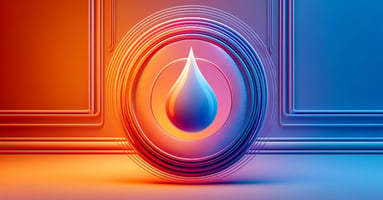Name: Greg Poverelli, Sr. Property Manager Company: Harlem Property Management Types of Buildings:...
Don't get burned by scalding hot water
When we think about dangers to people living in buildings, we think about catastrophic things like the ceiling falling in, or them being freezing because the heating stops working on the coldest day of year.
But in reality, there's actually something else that's far more common than all of these things. And worse, it's happening in about 30% to 40% of buildings right this second.
Burned by hot water is one of the most common risks to tenants in buildings today
It's called scalding domestic hot water.
It's pretty much what it sounds like: tenants are burned by hot water from their sinks or showers.
How is this happening in so many buildings and how do we fix it?
"Rebates are available from utility companies to pay for smart controls that detect scalding hot water issues."
In most buildings, a boiler creates incredibly hot water - like 200 degree water. But we don't send that 200 degree water up to showers and sinks.
Instead, we have a device called a mixing valve that takes that 200 degree water, mixes it with ice cold city water, and creates 130 degree water that's safe to send to tenants.
The problem is, in about 30% to 40% of buildings right now, that mixing valve is broken.
How can you detect when a mixing valve breaks?
The answer is smart controls.

We can put a wireless sensor on that hot water pipe to know exactly what the temperature is minute by minute.
The moment that mixing valve breaks and the water becomes too hot, we can get an alert on our cell phones and send a plumber or a technician out.
They fix the issue in minutes before anybody gets hurt.
They fix the issue in minutes before anybody gets hurt.
The beauty of smart technology is not only can we save a lot of money, but we can also make tenants safer.
Smart controls that detect broken mixing valves qualify for rebates from utility companies
These controls not only detect and alert to broken mixing valves, they also make buildings more energy efficient, so utilities will pay to have them installed. Use the free tool below to see if your building is eligible.




